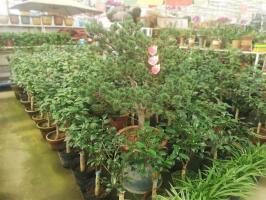A Woman is Not a Potted Plant 1991
Published in 1991, "A Woman is Not a Potted Plant" is a collection of essays by Alice Walker. The title itself is a powerful statement, implying that women should not be treated as decorative objects, but rather as individuals with their own unique voices and experiences.
The Value of Women's Voices
Walker's essays explore a wide range of topics related to women, including the importance of women's voices and the ways in which women have historically been silenced or marginalized. She argues that women have a unique perspective on the world, one that is undervalued but essential for understanding the human experience. By giving voice to women, we can gain a deeper understanding of ourselves and the world around us.
The Intersection of Race and Gender
Another theme in the book is the intersection of race and gender, and the ways in which women of color have faced unique challenges and oppression. Walker discusses the experiences of African-American women in particular, and how their struggles have often been ignored or marginalized by mainstream feminism. She argues that we must acknowledge the complex ways in which identity shapes our experiences, and work to create a more inclusive and equitable society for all women.
The Politics of Motherhood
In one of the essays, "The Democratic Motherism of Women Writers," Walker explores the politics of motherhood and the ways in which motherhood can be seen as a powerful force for change. She argues that motherhood can give women a sense of purpose and motivation to fight for a better world for their children. However, she also acknowledges the challenges of balancing motherhood with other roles and responsibilities, and the ways in which patriarchal structures have often limited women's ability to fully engage in political activism.
The Importance of Sisterhood
Throughout the book, Walker emphasizes the importance of sisterhood and women supporting each other. For her, sisterhood is about more than just personal relationships between women – it is a political act, a way of creating a community of support and solidarity that can challenge existing power structures. She argues that women must work together to create a more just and equitable world for all, and that this can only be achieved through collective action.
The Legacy of "A Woman is Not a Potted Plant"
Since it was first published in 1991, "A Woman is Not a Potted Plant" has become a classic of feminist literature. Its themes of women's voices, intersectionality, motherhood, and sisterhood continue to resonate with readers today. The book serves as a powerful reminder that women are not objects to be admired from afar, but complex and multi-dimensional human beings with a right to be heard and valued.
In conclusion, "A Woman is Not a Potted Plant" is a seminal work of feminist literature that continues to inspire and challenge readers. Its message of the importance of women's voices, intersectionality, motherhood, and sisterhood is as relevant today as it was when it was first published. Alice Walker's essays are a testament to the resilience and strength of women, and a call to action for us all to work towards a more just and equitable world.

 how many times do yo...
how many times do yo... how many planted tre...
how many planted tre... how many pine trees ...
how many pine trees ... how many pecan trees...
how many pecan trees... how many plants comp...
how many plants comp... how many plants can ...
how many plants can ... how many plants and ...
how many plants and ... how many pepper plan...
how many pepper plan...
































